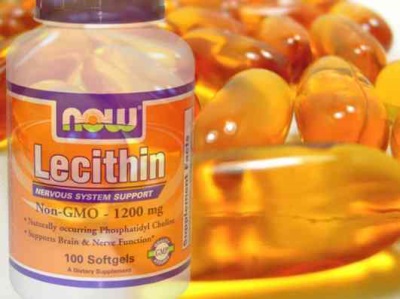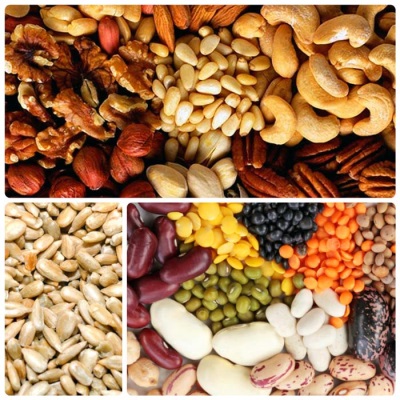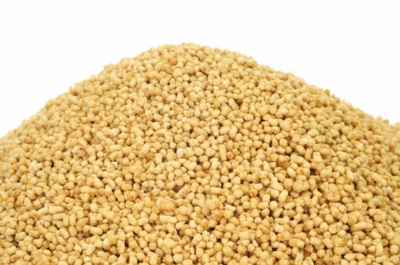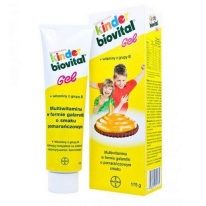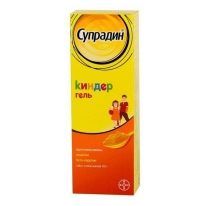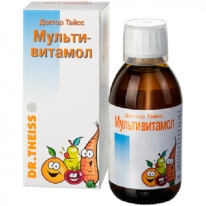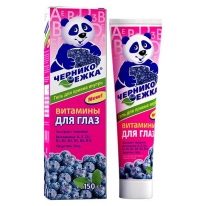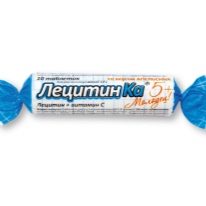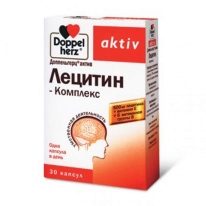Vitamins with lecithin for children
In childhood, the rate of growth and development processes is very active, so for children it is important to get a lot of trace elements, vitamin compounds, proteins, healthy fats and other nutrients. Lecithin is one of such important compounds for the health and development of babies. What products does it contain, what is it valuable for children and is it possible to take it in the form of vitamin supplements?
Properties
Lecithin calls fat-like organic compound related to phospholipids. Such a substance acts as a structural element of cell membranes (their membranes). Its constant intake is important for the brain, heart, kidneys, digestive tract and other organs. Children need it from birth, getting it with their mother's milk, and when they try feeding them, they also need it with food.
Lecithin has the following effects on children's body:
- Strengthening and improving the functioning of the nervous system.
- Normalization of the brain.
- Improved liver function.
- Strengthening the immune system.
- Improvement of the gastrointestinal tract.
If it is lacking, the child’s mental development can be disturbed - the baby becomes whiny and irritable, his sleep is disturbed, and his thinking, attention and memory deteriorate. Also, the lack of such a connection affects the child's motor activity, which is manifested by fatigue.
Products with its content
The main source of lecithin for humans are food. The child can receive this compound from:
- Eggs
- Of the liver.
- Nuts
- Seeds.
- Fish.
- Sunflower oil.
- Legumes (especially from soy).
- Dairy products.
- Buckwheat and other cereals.
In addition
Forms of release
Lecithin, which can be given to children from an early age, is most often represented by gel. In this form, the additive does not cause rejection in children, as the gel is often sweet and tasty. In addition, other vitamin compounds are usually present in such a gel.
For older children, lecithin is:
- Granular. This additive is dissolved in water or juice, mixed with cereal, yogurt, salad and other food. You can also just swallow the granules and drink it with liquid or chew them.
- In capsules. They need to swallow and drink water, so these supplements are chosen for children over seven years old.
Indications
Supplements including lecithin are recommended for:
- Stressful situations.
- Unbalanced nutrition.
- High mental stress.
- Sports activities.
- Increased nervous excitability.
- Enuresis.
- Adaptations in the new team.
Contraindications
Vitamin preparations containing lecithin are not prescribed for intolerance to this compound. Complexes with it, including vitamins D and A, are contraindicated in case of hypervitaminosis D or A, as well as problems with calcium metabolism.
Due to the content of sugar in children's vitamins, such drugs are not recommended for diabetes.
We recommend to watch the informative video in which all the properties of lecithin and the effect of this substance on the body are revealed in detail:
The names and composition of the most popular supplements with lecithin for children
|
The name of the additive and the release form (from what age it is used) |
Composition and dosage |
|
Kinder Biovital gel (from birth) |
In addition to lecithin, it contains 10 vitamins, calcium phosphinate, sodium molybdate and manganese citrate. In infancy and preschool age, 2-3 times a day for half a teaspoon is taken, in school and adolescence - for a whole teaspoon twice a day. |
|
Supradin Kids Gel (from 3 years) |
Includes 8 vitamins, lecithin and beta-carotene. At 3-6 years of age, 2.5 grams are administered two to three times a day, and children over 7 years old - 5 grams twice a day. |
|
Multivitamol Doctor Theiss syrup with lysine and lecithin (from 6 years) |
Contains lecithin, vitamins of group B, A, D3, E and C, as well as lysine. Appointed by 5 ml once a day. |
|
Blueberry Gel (from 14 years) |
Includes vitamins of group B, lecithin, iodine, vitamins A, E and D3. Take 5 grams twice a day. |
|
Lecithin Ka sweet lozenges (from 14 years) |
Contains lecithin and ascorbic acid. Appointed by one tablet 5-6 times a day. |
|
Doppelgerts asset Lecithin-Complex capsules (from 14 years) |
Contains lecithin, vitamin E and 7 vitamins of group B. It is taken in one capsule daily. |
Instruction
Taking these supplements is best with or in front of a meal. It is important to observe the age dosage, specified in the instructions, which is attached to the selected drug.
Gel lecithin is given to children with a spoon or spread on cookies or bread. The drug in capsules usually give before meals. The granules dissolve in a glass of liquid and offer to drink to the child while eating. The optimal daily dosage of the substance is 1-4 grams.
Reviews
About vitamin supplements, in the composition of which there is lecithin, respond in most cases well. Parents often buy it for themselves and for children. In this case, demand and complex vitamins, for example, Supradin or Multivitamol, and drugs in which it acts as the main ingredient.
Many mothers order lecithin in granules and capsules abroad, choosing products of such popular manufacturers as Now Foods, Source Naturals, Solgar, Bluebonnet Nutrition and other brands.
Soy lecithin is bought for girls, and if an additive is sought for a son, parents prefer a product based on sunflower or egg yolks.
Those who gave lecithin in the composition of the vitamins to the child, note that it is mostly well tolerated, but allergy cases are not uncommon, therefore, it is recommended to try any vitamins with him for the first time carefully.
How the substance affects the development of the child, see here:
Opinion of Dr. Komarovsky on the introduction of dietary supplements, see his program.

